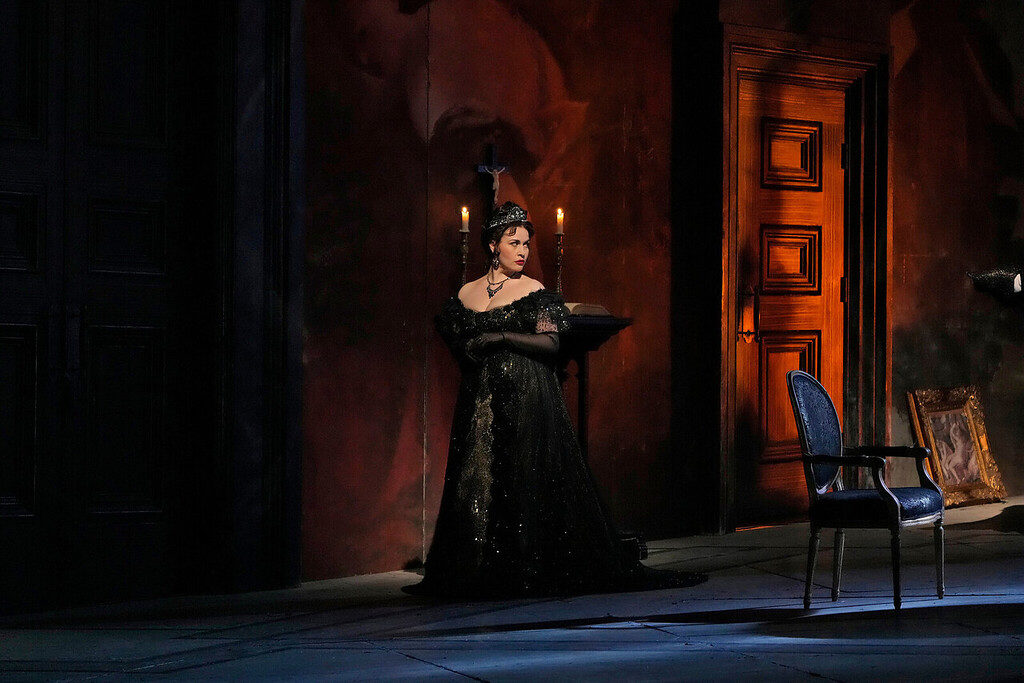THE HANGOVER REPORT – Notable rising Russian soprano Elena Stikhina shines brightly in the iconic role of TOSCA at the Met
- By drediman
- January 20, 2022
- No Comments

Earlier this week, I had the opportunity to catch a performance of the Metropolitan Opera’s production of Tosca. The visit – which is likely my final trip to the Met before it goes on a newly instated monthlong hiatus in February – introduced to me a notable rising star in Elena Stikhina, who along with fellow sopranos Sondra Radvanovsky and Aleksandra Kurzak have been scheduled this 2021-2022 season to share the title role in Puccini’s popular opera.
Earlier this fall, Met favorite Ms. Radvanovsky caused quite the stir in the opera, and I’m happy to report that Ms. Stikhina is worthy of similar buzz. Unlike Ms. Radvanovsky, Ms. Stikhina is a relatively unknown commodity at the Met (her Met debut occurred relatively recently in 2018 when she played the title role in Suor Angelica in Il Trittico). In her current performances in Tosca, the Russian soprano – whose velvety instrument is richly bodied and possesses astonishing control – shines brightly, rightfully laying greater claim to stateside stardom. The sumptuous tone she creates seems as effortless as breathing, which gives her the ability to act with greater nuance than her peers. Indeed, hers is one of the most sensitively played and relatable Toscas I have seen – not just passionate and fiery, but also believably girlish and touchingly vulnerable. Indeed, her rendition of Act II’s bruised aria “Vissi d’arte” was a masterclass in interpreting an aria completely within the context of the character and situation. Her costars – Met stalwarts Joseph Calleja (Cavaradossi) and George Gagnidze (Scarpia) – more than held their own, giving fine vocal and dramatic performances. In the pit, veteran conductor Carlo Rizzi drew out a vibrant account of the Puccini score from the mighty Met Orchestra.
After the Met retired its controversial production of Tosca by Luc Bondy five years ago, Sir David McVicar was tapped to stage a more traditional production of the Puccini warhorse. If Mr. McVicar’s handsome Zeffirelli-esque production somewhat lacks in innovation and a point of view, it serves its purpose just fine as a sturdy revolving door for a steady stream of performers to tackle the opera’s iconic roles. Despite the excellent performances I witnessed, I was discouraged to see the house only at roughly 30 percent capacity. Let’s hope that the (hopefully post-Omicron) performances in March bodes better for the box office.
RECOMMENDED
TOSCA
Opera
The Metropolitan Opera
3 hours (including two intermissions)
In repertory through March 12

 Copyright © 2024
Copyright © 2024
Leave a Reply